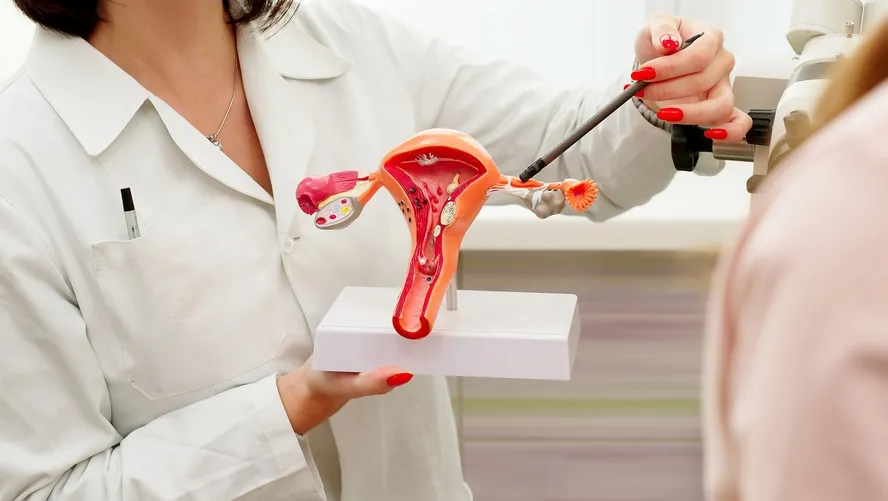
The Department of Obstetrics and Gynecology is a branch of medicine that covers women's reproductive health and childbirth processes. This department specializes in the diagnosis and treatment of various health problems and diseases that women may encounter throughout their lives. The Department of Obstetrics and Gynecology offers many services such as gynecological examinations, pre- and post-natal care, and menopause management. The main diseases treated in the department include menstrual irregularities, infertility, endometriosis, uterine and ovarian cancers, vaginal infections, and pelvic floor disorders.
About the Department of Obstetrics and Gynaecology
The Department of Obstetrics and Gynecology offers a wide range of services to protect and improve women's health. The specialists working in this department have extensive knowledge and experience to evaluate women's general health, diagnose diseases and create treatment plans. The services provided in the department include birth control methods, pregnancy follow-up, postpartum care, hormone treatments and surgical interventions.
Who is a Gynecologist and Obstetrician and What Are Their Duties?
An obstetrician and gynecologist is a doctor who specializes in women's reproductive health and childbirth. These specialists are professionals who are trained and certified in gynecology and obstetrics. The duties of an obstetrician include performing routine gynecological exams, providing prenatal and postnatal care, administering infertility treatments, diagnosing and treating gynecological cancers, and providing menopause management.
What Diseases Does Gynecology and Obstetrics Cover?
The Obstetrics and Gynecology department covers the diagnosis and treatment of many diseases that affect women's reproductive and general gynecological health. The main diseases and conditions covered in this department are:
1. Menstrual Irregularities
Menstrual irregularities include abnormalities in the menstrual cycle, excessive bleeding, scanty bleeding, or no menstrual periods. These problems can be caused by hormonal imbalances, polycystic ovary syndrome (PCOS), or other health problems.
2. Polycystic Ovary Syndrome (PCOS)
PCOS is a hormonal disorder that causes many small cysts to form inside the ovaries. This can cause irregular periods, infertility, and other health problems.
3. Endometriosis
Endometriosis is a condition in which the lining of the uterus grows outside of the uterus. This can lead to painful periods, chronic pelvic pain, and infertility.
4. Myomas
Fibroids are benign tumors that form in the wall of the uterus. They usually do not cause symptoms, but in some women they can cause problems such as heavy menstrual bleeding, pelvic pain and difficulty urinating.
5. Uterine and Ovarian Cancers
Obstetricians and gynecologists specialize in the early diagnosis and treatment of cancers of the uterus, cervix, ovary, and fallopian tubes. If these types of cancer are detected in the early stages, the chance of cure is higher.
6. Vaginal Infections
Vaginal infections can be caused by bacteria, fungi or parasites. These infections can cause vaginal discharge, itching and discomfort.
7. Infertility
Infertility is the inability to achieve pregnancy despite regular unprotected sexual intercourse for one year. Infertility treatments include medications, surgery, and assisted reproductive technologies (ART).
8. Pelvic Inflammatory Disease (PID)
PID is an infection of the female reproductive organs. It is usually caused by a sexually transmitted infection and can cause infertility if left untreated.
9. Ectopic Pregnancy
An ectopic pregnancy is when a fertilized egg implants outside the uterus, usually in the fallopian tubes. This can be life-threatening and requires immediate medical attention.
10. Menopause and Menopause Related Conditions
Menopause refers to the period when a woman’s menstrual cycle ends. Hormonal changes during this time can cause symptoms such as hot flashes, night sweats, sleep problems, and emotional changes. Gynecologists create treatment plans to manage menopause symptoms.
The Department of Obstetrics and Gynecology provides diagnosis and treatment of these and many similar diseases to protect and improve women's health. Regular gynecological check-ups help in early diagnosis and treatment of these diseases.
What are Gynecology and Obstetrics Examinations?
Obstetrics and gynecology examinations are very important for protecting women's health and early diagnosis of diseases. These examinations include pelvic examination, Pap smear test, ultrasonography, mammography, hormone tests and blood tests. Routine gynecological examinations should be performed regularly to monitor women's reproductive health and detect potential problems at an early stage.
What Methods Are Used in Gynecology and Obstetrics Treatments?
Various methods are used in gynecology and obstetrics treatments. These methods include drug treatments, hormone treatments, surgical interventions, laparoscopic surgery, birth control methods and infertility treatments. In addition, prenatal care services are provided to monitor the health of expectant mothers and the development of the baby during pregnancy. The treatment method is determined according to the patient's condition and the type of disease.
When Should You Go to the Obstetrics and Gynaecology Department?
Visiting the gynecology and obstetrics department at regular intervals is important for the protection of women's health. Routine gynecological examinations should be performed once a year. In addition, a gynecologist should be consulted in cases such as menstrual irregularities, painful menstruation, abnormal vaginal bleeding, pelvic pain, infertility, pregnancy planning, and menopause symptoms. Early diagnosis and treatment are critical to preventing disease progression.
What is done during a Gynecology and Obstetrics Examination?
Various assessments are made during the gynecology and obstetrics examination. Pelvic examination is performed to check vaginal and cervical health. Pap smear test is used to determine the risk of cervical cancer. Ultrasonography provides visualization of the reproductive organs. Blood and hormone tests are performed to evaluate hormonal balances and general health status. These examinations are necessary to monitor the general health status of the patient and to detect potential problems early.
















